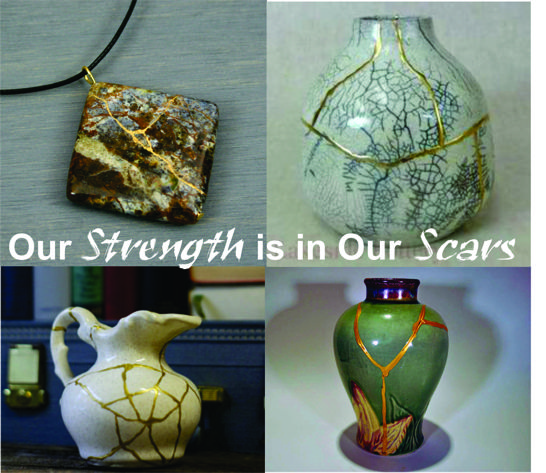
In the past couple of years, I’ve heard many aphorisms about perfection.
- Perfect is the enemy of good.
- Done is better than perfect.
- Perfection is a myth.
- Perfection is an illusion.
“Perfectionism” has always fascinated me. Partially, because I am a devout practitioner, and partially because I know in my head it doesn’t exist – even though my heart longs to achieve it.
I think we perfectionists are really procrastinators who are afraid.
Afraid of what? Getting found out, showing others we aren’t that good at what we claim, finding out that this thing we’ve wanted isn’t really as fun as we thought it would be, failing.
How do I know this? I put the “pro” in procrastinator. I am an Olympic-caliber putter-offer.
I think it started when I was younger, and my dad put so much pressure on my siblings and me to be the best in everything. Maybe, if I put a project off long enough, I wouldn’t have to do it at all, and there would be no criticism (unrealistic, I know, but we’re talking about my kid-brain here).
We all face so much criticism for not being perfect. What would happen if we started embracing our imperfections? What would we learn? Would we realize that our imperfections make each of us unique? Even special? (Here are links to other posts I’ve written about fear and perfectionism)
Wabi Sabi and Kintsugi
Wabi Sabi is the Japanese philosophy that values and recognizes the beauty of imperfections (Here are a couple websites about Wabi Sabi).
One Wabi Sabi technique is Kintsugi, the Japanese technique of repairing cracks and breaks in ceramic with gold, which really makes the repair stand out. It even makes the piece more beautiful, and more valuable than it was when it was unbroken.
Using gold to hold the pieces of a broken bowl together not only adds the value of the gold itself, but also creates beautiful patterns throughout the ceramic piece. It’s not just the gold that makes the bowl more beautiful. It is the pattern of the cracks.
Kintsugi is a perfect metaphor for all of us when we try to hide our own flaws and broken parts.
We all have cracks and chips and some missing pieces. That’s what makes us human. No two cracks are the same. Which means we can’t fix those cracks the same way. Each repair is unique to the person.
Some of us need counseling, some of us need medication, some of us need to change our mindsets, or a combination of everything available. But we are still beautiful even with all our scars and cracks.
I’ve heard that the Amish do something similar with their quilts, except the flaws are intentional. The Amish say that only God is perfect, so they make mistakes in their quilts to show their humility (this is actually a myth, but it’s still a good reminder. Ask any quilter, Amish or otherwise, and they’ll assure you mistakes happen whether they mean it or not).
It is also said that a broken bone is stronger at the point of the break once it’s healed. The repair makes it stronger.
Don't Compare
We’ve all become so conditioned to show the world our perfect lives on Facebook and Instagram and Pinterest. Someone told me once (if I could remember, I’d give proper attribution) that we can’t compare the inside of our lives to the outside we see of someone else’s.
That Instagram post of the beautiful house or the fantastic vacation doesn’t tell a complete story. We don’t know about the “inside” of that post or photo. All we can see is the “perfect” portrayal the sharer wants us to see.
At the time of this writing, I am driving back and forth from home to our local children’s hospital. Our oldest has been having a lot of pain and we just haven’t been able to figure out where it’s coming from (here are a couple other posts where I write about my son, Evan. During those drives, I’ve been listening to our local Christian radio station (104.9 The River) and heard the new song from Matthew West called Truth Be Told. The lyrics fit perfectly with my thoughts on our attempts to show the world how perfect we are. Here is just a part of the song’s lyrics:
Truth Be Told
“Lie number one you’re supposed to have it all together
And when they ask how you’re doing
Just smile and tell them, ‘Never better’
Lie number two everybody’s life is perfect except yours
So keep your messes and your wounds
And your secrets safe with you behind closed doors
“There’s a sign on the door, says, ‘Come as you are’ but I doubt it
‘Cause if we lived like it was true, every Sunday morning pew would be crowded
But didn’t you say the church should look more like a hospital
A safe place for the sick, the sinner and the scarred and the prodigals
Like me
Maybe we can look to our faith to fill in our cracks. I like thinking of Jesus as the gold that holds my breaks together and makes me more beautiful and valuable. Maybe there’s something else–something bigger–holding you together, like the Universe, your family, your culture.
Whatever it is, it makes you beautiful.
So, don’t be ashamed of your flaws. Our imperfections make us perfectly us.
Until next week,
Susie from Stix-N-Stonez

2 thoughts on “Our Imperfections Make Us Perfectly Us”
I think that striving for high standards in one’s outcomes can be a positive thing. The negative is when any outcome other than perfection is not accepted. For me, being in community with others helps me deal with that perfectionist’s procrastination. I would have never gotten that afghan done except for you taking it up and working on it, too! Others not only come alongside, they open my viewpoint to look at acceptable outcomes that I might never have considered. I would have kept berating myself for either not getting something done or for not getting it done well enough.
An educator once told me that procrastination was a form of passive aggression. Lol. Golly, THAT opens a whole other discussion, doesn’t it? Love you, sis. Keep posting!
Love you back!
Comments are closed.